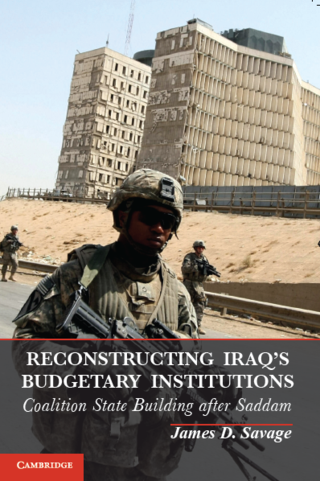
Posted by James D. Savage, University of Virginia
The invasion of Iraq led to a costly nine-year state-building and reconstruction effort. Reconstructing Iraq's budgetary institutions proved to be a vital element of the state-building project, as allocating Iraq's growing oil revenues to pay salaries and pensions, build infrastructure, and provide essential public services played a key role in the Coalition's counterinsurgency strategy. Employing a historical institutionalist approach, this book first explores the Ottoman, British, and Ba'athist origins of Iraq's budgetary institutions. The book next examines American pre-war planning, the Coalition Provisional Authority's rule making and budgeting following the invasion of Iraq in 2003, and the mixed success of the Coalition's capacity-building programs initiated throughout the occupation. The budgetary process introduced by the Coalition offered a source of institutional stability in the midst of insurgency, sectarian violence, economic uncertainty, and occupation. This book explores the problem of "outsiders" building states, contributes to a more comprehensive evaluation of the Coalition in Iraq, addresses the question of why Iraqis took ownership of some Coalition-generated institutions and not others, and helps explain the nature of institutional change.
Cambridge University Press
Hardback, $90.00/ISBN: 9781107039476
Paperback, $32.99/ISBN: 9781107678767
Note: The posts on the IMF PFM Blog should not be reported as representing the views of the IMF. The views expressed are those of the authors and do not necessarily represent those of the IMF or IMF policy.







